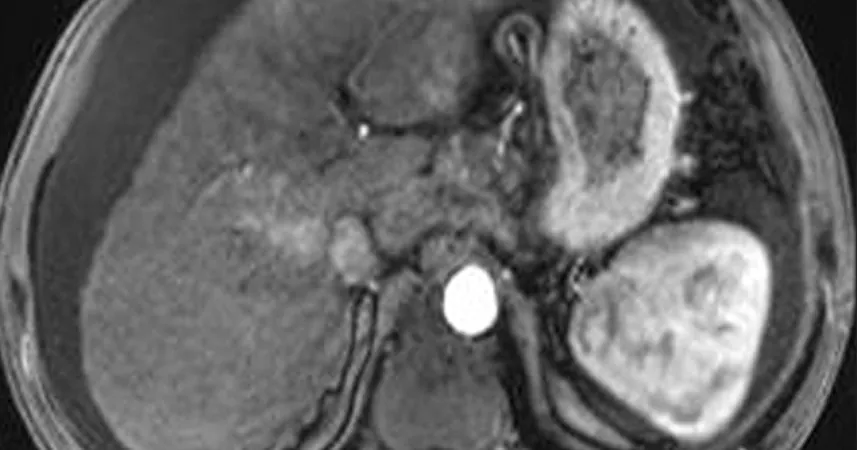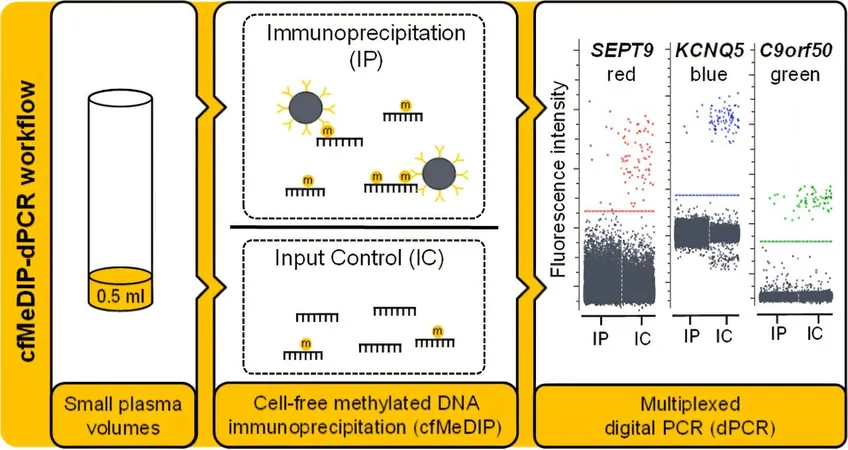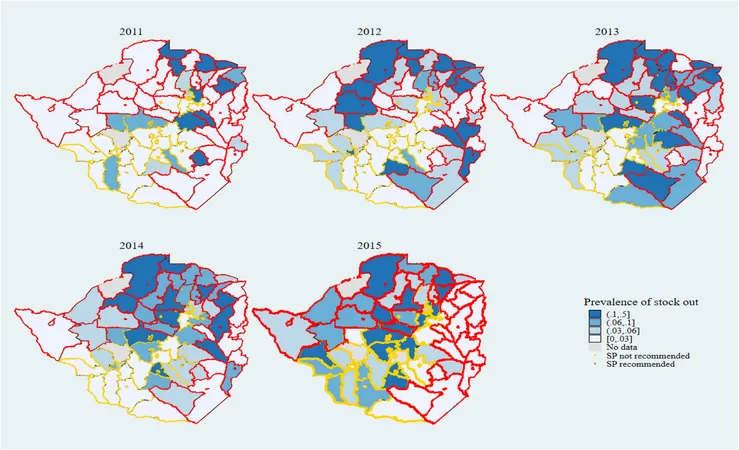
Revolutionary Abbreviated MRI Protocols: A Game-Changer for Liver Cancer Screening?
2025-01-09
Author: Li
Introduction
In an exciting development for medical imaging, abbreviated MRI (AMRI) protocols have surfaced as a promising alternative to the traditional ultrasound method for diagnosing hepatocellular carcinoma (HCC), a common and aggressive form of liver cancer.
Current Challenges with Ultrasound for HCC Screening
Currently, ultrasound is the go-to technique for HCC screening, but its efficacy is hampered by various factors such as a patient's body composition, the skill level of the technician, and underlying liver conditions like cirrhosis. These limitations have raised concerns about the sensitivity of ultrasound in accurately detecting liver tumors. While previous research has shown that hepatobiliary-specific contrast MRI can enhance diagnostic precision, issues regarding accessibility and cost-effectiveness have drawn skepticism.
The Viability of Abbreviated MRI Protocols
Given the challenges associated with conventional imaging, researchers have started to explore the viability of abbreviated non-contrast MRI protocols for HCC screening. However, inconsistencies in earlier studies regarding methodology and reliability have prevented this innovative approach from becoming standard practice.
Research by Cong Wang and Team
To address these discrepancies, a team of experts, led by Cong Wang from the Department of Medical Imaging at Henan Provincial People's Hospital, conducted a comprehensive systematic review, scrutinizing literature related to abbreviated MRI protocols. Their findings were recently published in the esteemed journal Academic Radiology.
Wang and colleagues noted, "Despite the increasing interest in AMRI for HCC screening, there exist differences and inconsistencies in the reported results within the previous literature, which might influence clinical decision-making.” They highlighted that the limited sample sizes in existing studies, along with inadequate statistical methods, raise questions about the robustness of these findings.
Key Findings
After a meticulous analysis narrowing down the results to 19 relevant studies from an initial pool of 769, the research team calculated a commendable pooled sensitivity of 0.85 and specificity of 0.93 for AMRI in diagnosing HCC. Furthermore, a subgroup analysis revealed that non-contrast AMRI and images taken during the hepatobiliary phase (HBP) had a sensitivity of 0.84 and specificity of 0.92, while T2 and diffusion-weighted images demonstrated the highest diagnostic efficacy.
Conclusion
These promising results indicate that abbreviated MRI protocols could significantly improve liver cancer surveillance, especially in cases where ultrasound proves insufficient. The research team advocated for the adoption of AMRI, citing advantages such as reduced scan times, lower costs, and comparable, or even superior, diagnostic accuracy.
“In summary, based on previous studies and our own meta-analysis findings, AMRI presents fewer scan sequences, lesser financial and temporal burdens, and greater diagnostic capability. This positions it as a viable alternative to ultrasound in HCC clinical screening," the team concluded.
Future Implications
As research on abbreviated MRI protocols continues to evolve, the medical community may be on the cusp of integrating this innovative technology into routine clinical practice, potentially transforming the landscape of liver cancer diagnosis and improving patient outcomes.
The full study abstract is available for those who wish to delve deeper into the findings. Don't miss out on this groundbreaking advancement in medical imaging!


 Brasil (PT)
Brasil (PT)
 Canada (EN)
Canada (EN)
 Chile (ES)
Chile (ES)
 Česko (CS)
Česko (CS)
 대한민국 (KO)
대한민국 (KO)
 España (ES)
España (ES)
 France (FR)
France (FR)
 Hong Kong (EN)
Hong Kong (EN)
 Italia (IT)
Italia (IT)
 日本 (JA)
日本 (JA)
 Magyarország (HU)
Magyarország (HU)
 Norge (NO)
Norge (NO)
 Polska (PL)
Polska (PL)
 Schweiz (DE)
Schweiz (DE)
 Singapore (EN)
Singapore (EN)
 Sverige (SV)
Sverige (SV)
 Suomi (FI)
Suomi (FI)
 Türkiye (TR)
Türkiye (TR)
 الإمارات العربية المتحدة (AR)
الإمارات العربية المتحدة (AR)